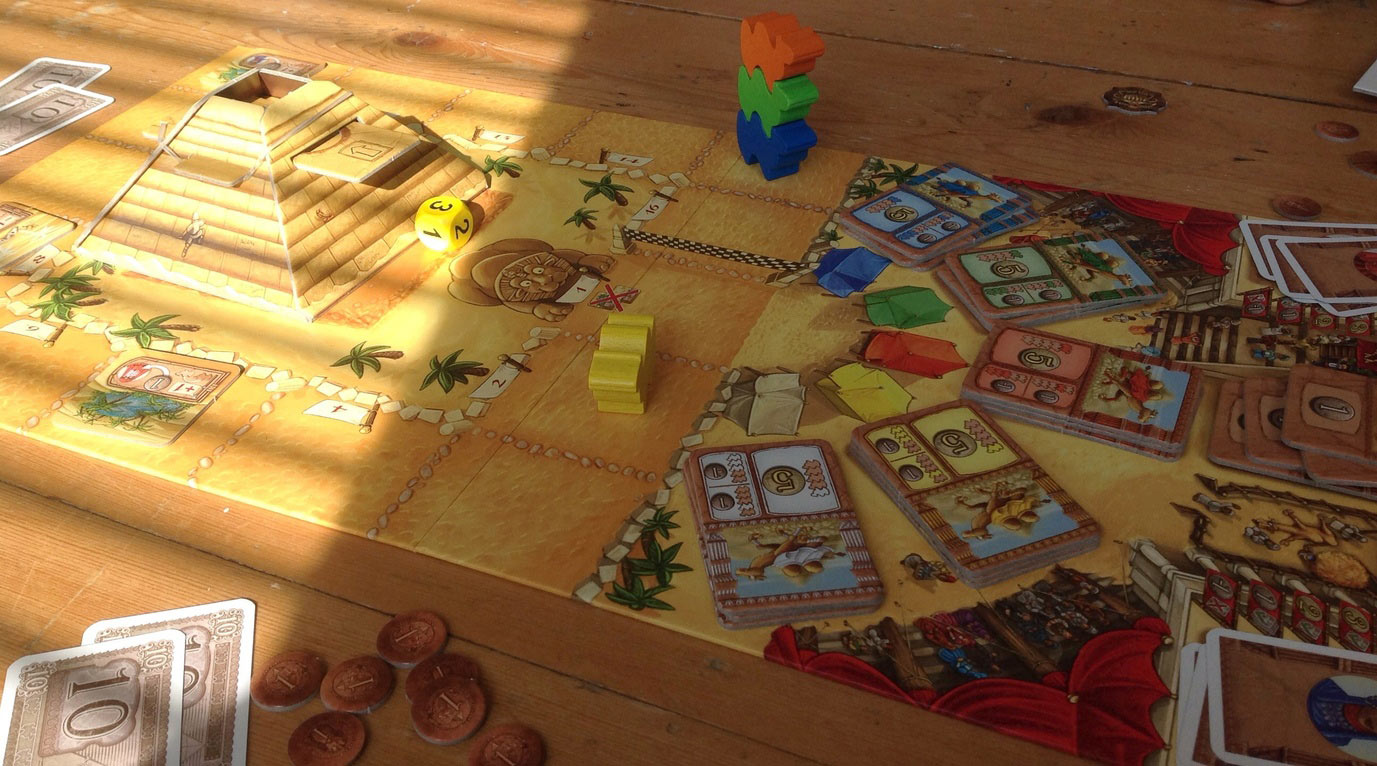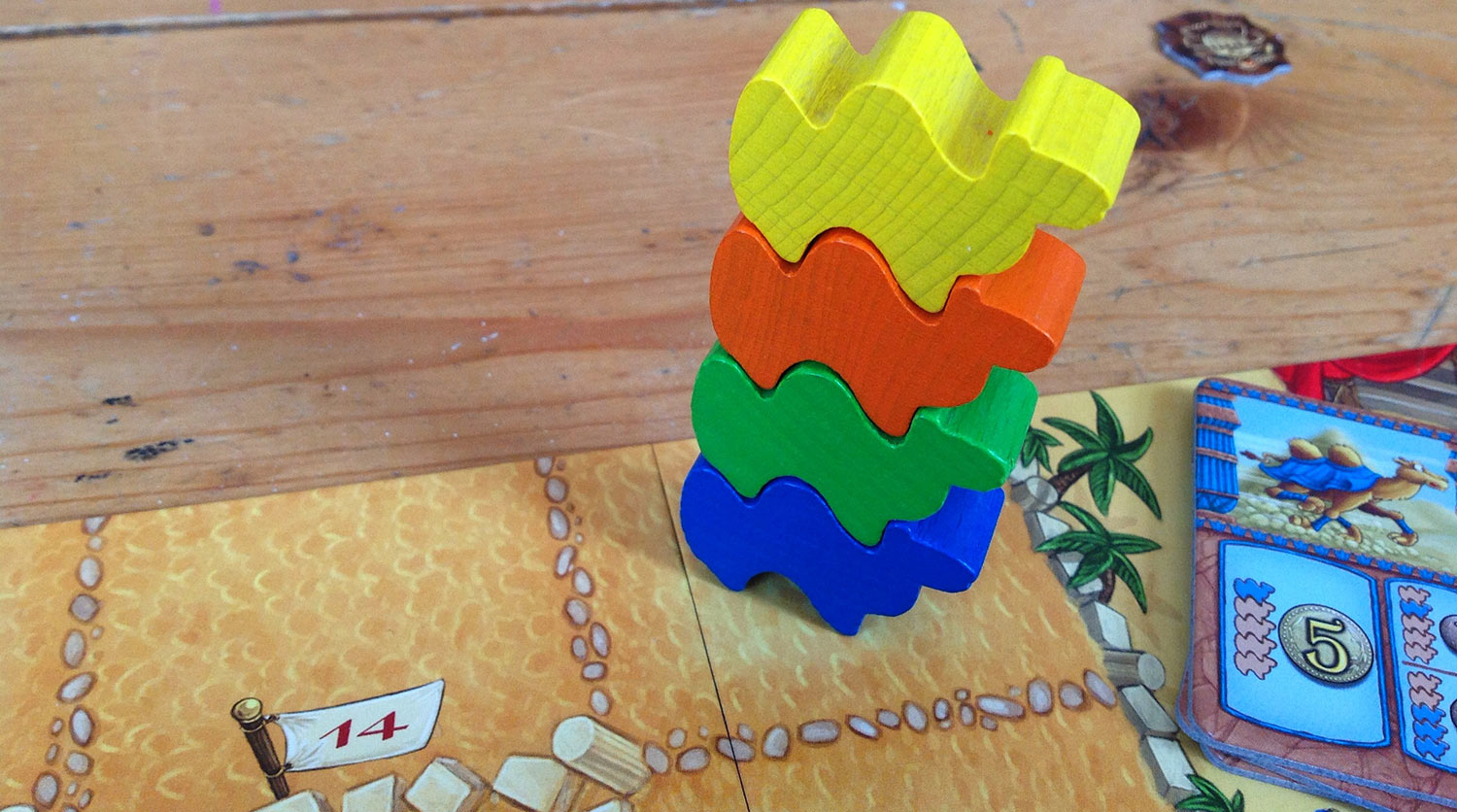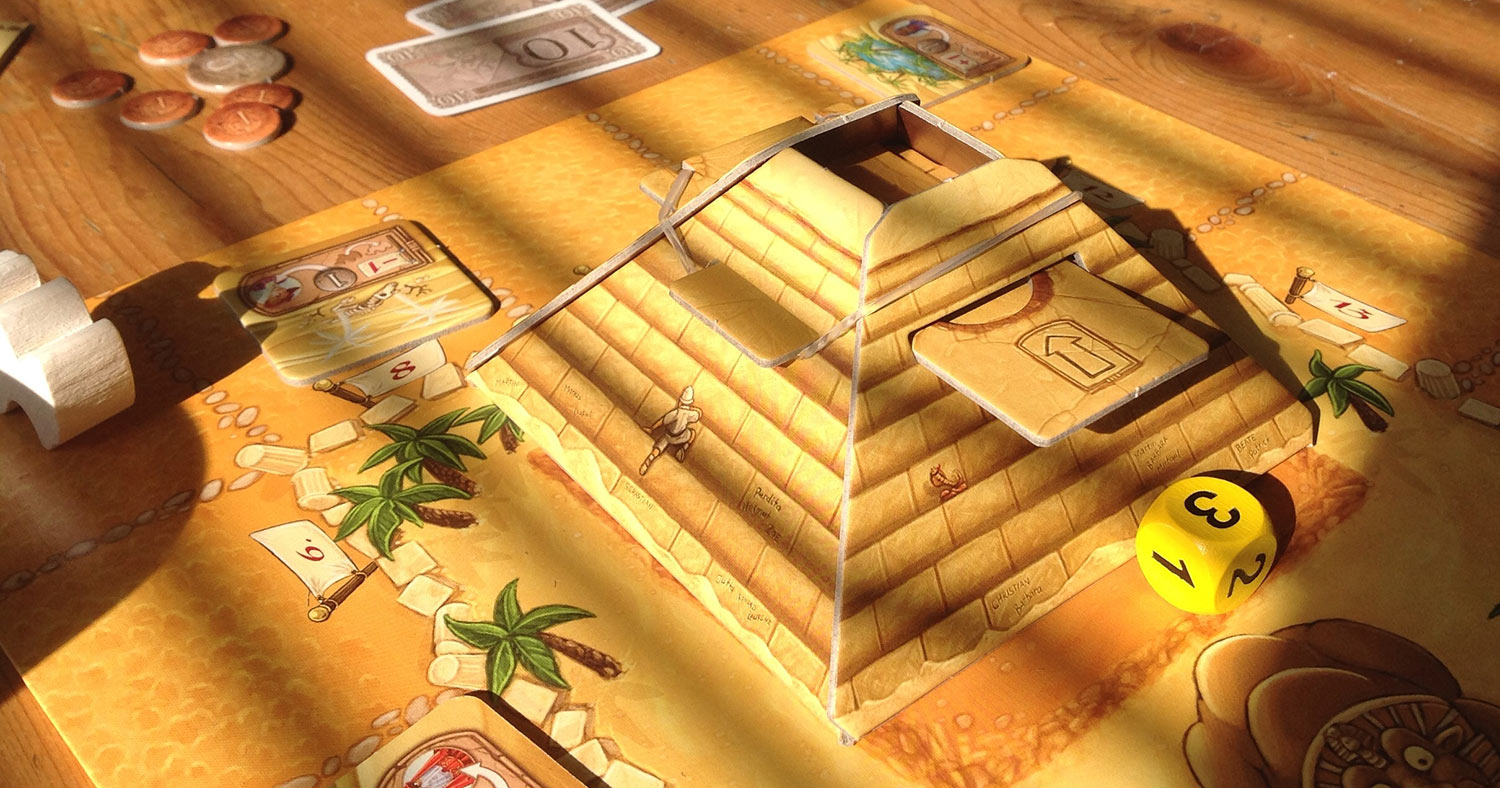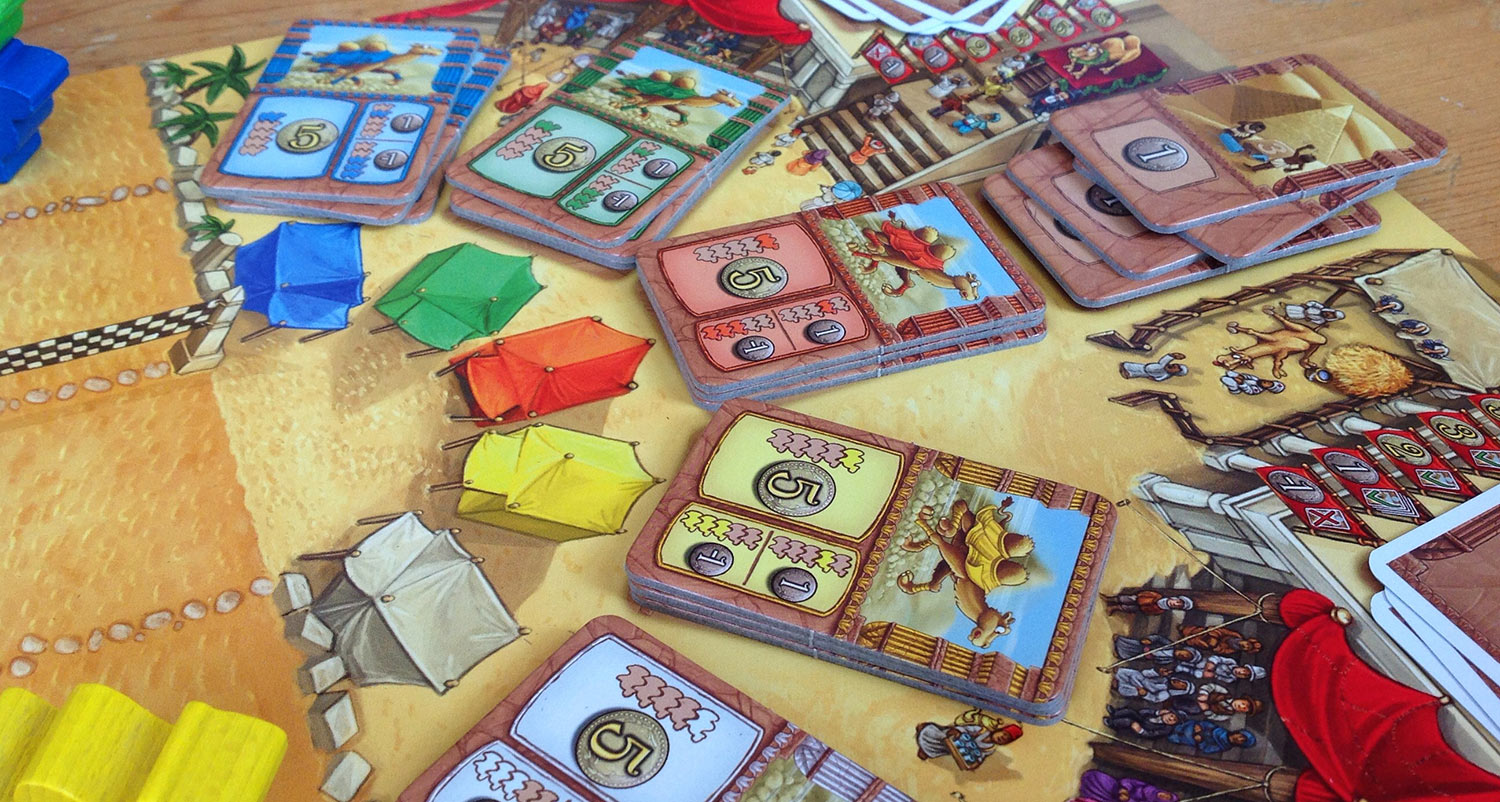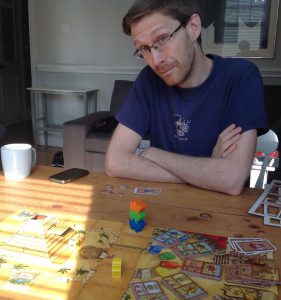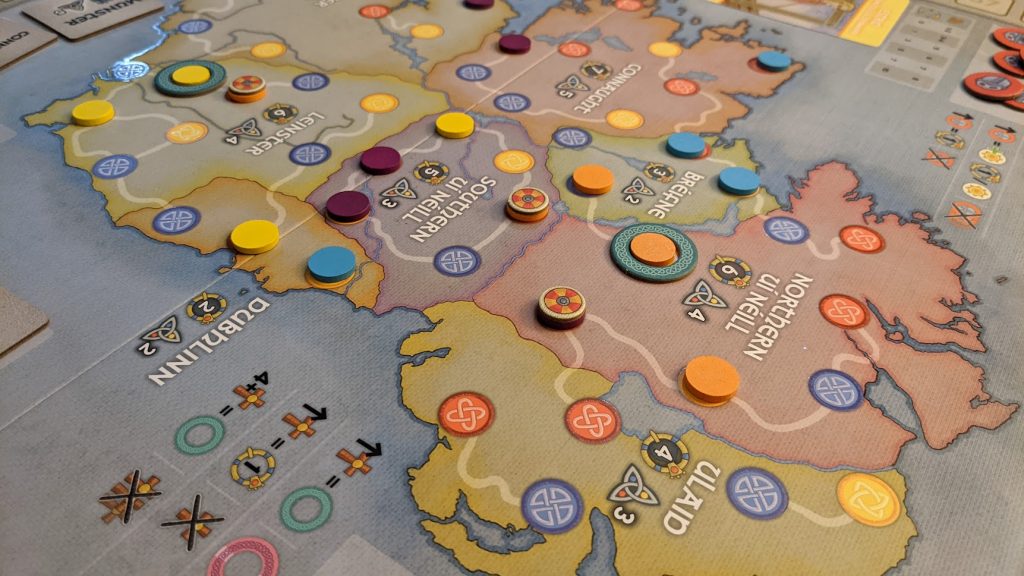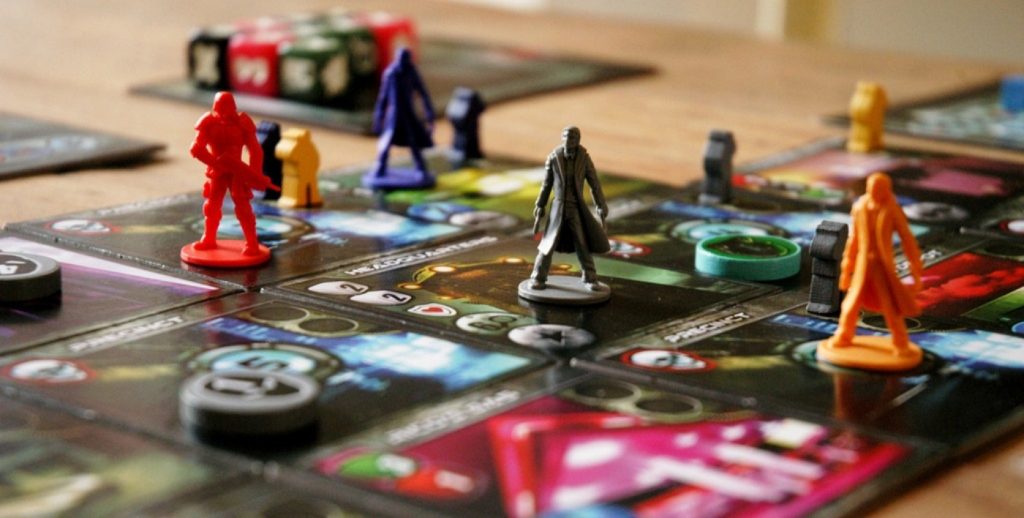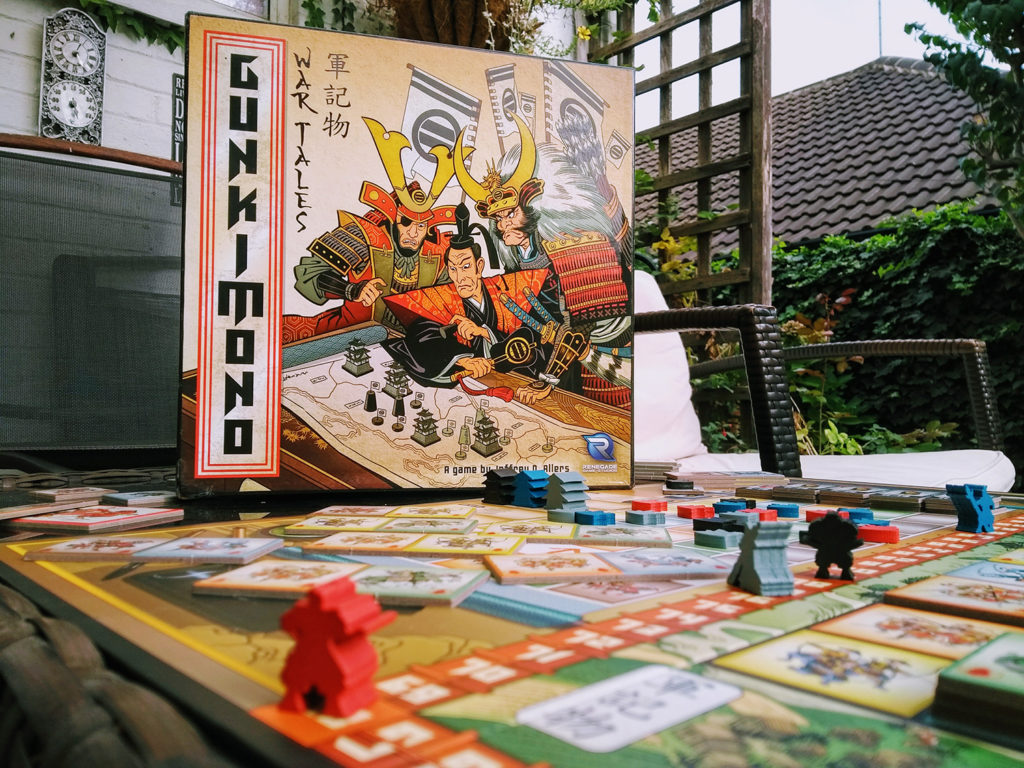Quinns: As you’d imagine, we take our time with the games we review. There are tea breaks. Pee breaks. We’ll pass around a bit of cardboard, saying things like “Feel how thick that is!” and “That’s quite thick actually”. But yesterday? Yesterday, we were in a hurry.
“PUT YOUR FINGER HERE,” I ordered. Matt cautiously slipped a forefinger into the recess of my toy pyramid, letting me wrestle a rubber band around its neck.
“OK,” I began. “We’re going to bet on some camels now. It’s going to be fun, OK? This game won an award. Now everybody sit down and listen to the rules because we only have half an hour oh jesus is that the time let’s go let’s go”
These were terrible conditions to test a game under. But in a sense, they couldn’t have been more perfect. Camel Up won 2014’s Spiel Des Jahres prize, you see. This year hundreds of thousands of copies will find their way into homes across Germany, the game’s wooden camels bearing a solumn duty to provide maximum fun with minimum effort. In needing Camel Up to do its thing fast, we were probably testing it under normal family conditions. Could it still make us smile?
The short answer is “Yes”. A better answer is this picture of our lead camel getting mounted by the competition in the closing seconds of the race. Not pictured: Our mouths hanging open in awe because he was going to carry this teetering stack across the line, handing yellow the win.
Up to eight(!) players in Camel Up make up a mad, heat-stroke afflicted audience trying to make money from a camel race. On your turn you do one of four things, each with its own primal, childish appeal.
1: Move a camel!
You can earn one Egyptian pound by picking up the chunky pyramid in the middle of the board, turning it upside-down and pulling the lever, causing it to deposit a die like a cubic turd. You then move the corresponding coloured camel either 1, 2 or 3 spaces, according to the die.
But wait! There’s more. Camel Up is a member of a long line of German race games where if a piece moves onto the space of another piece, it climbs on top of it. If any camel carrying another camel moves, it takes them with it (and legally, the camel on top is in the lead).
EMOTION CAUSED: Embarrassing, inexplicable levels of joy.
2: Bet on the winner of the leg!
A leg of Camel Up ends when all five dice have been emptied out of the pyramid. To bet on the winner of a leg you simply spend your turn taking one of that camel’s betting tiles, and get money if they win but lose money if they come 3rd, 4th or 5th.
But here’s the twist. Each camel has one tile that pays out 5 pounds, another that pays 3, and a final one that pays only 2. So you want to quickly claim the 5 pound one early, except if you get it early you have no idea if it’ll still be leading the pack in 5 minutes, so you want to leave them the hell alone, but then your friends pick them up, and you can’t let that happen…
EMOTION CAUSED: Smug satisfaction laced with terror. You’ve pulled off the perfect heist! Or have you? Oh god
3: Bet on the overall winner!
Your turn can also be spent dropping one of the five coloured cards in your hand, face down, into the betting piles for overall winner and overall loser of the entire race. Again, if you’re the first player to correctly bet, you’ll make a pile of money. But a wrong bet will lose you money! Oh no
EMOTION CAUSED: A sense of peace with the universe as you relinquish control. You are throwing your keys into the bowl at a swinger’s party. You are a unique and beautiful creature, made from dead stars. You– oh no white DON’T CLIMB ONTO BLUE NO
4: Place your oasis!
Once per game players can socket their personal Oasis tile onto a space, or flip it to place it as a Mirage. Any camel that steps on an Oasis is pushed forward and earns you a pound. A Mirage pushes camels backward and earns you a pound. It’s a rude, self-involved way to manipulate the results of the race.
EMOTION CAUSED: You are controlling the race! You are the lord of the camels, as was your father before you, and his father before youNO NO I DIDN’T WANT YOU TO STEP ON IT ORANGE OH GOD DAMMIT NO
Here’s the thing about Camel Up. It’s absurd. Of course it’s absurd. Every leg someone’s going to realise that the sure thing they bet on is now, inexplicably, in 4th place. But as well as being mad it’s also the cleanest design I’ve encountered in months. This is a simple game where everything you can do is satisfying. A game where anyone might win, but where players always have agency. It’s reliable game that still manages to surprise you, and a fairly cheap box full of gorgeous components. Fantastic.
There’s just one problem. I can’t for the life of me think of a reason to buy it over any of the other great games we cover.
If you’re on this site then you might know the sorts of reasons we give you to buy games. As far as games to get people into the hobby go, PitchCar is something you can pass on to your kids. Sherlock Holmes is the best game for couples we’ve ever found. Skull & Roses packs a deeply sexy game into impossibly few rules. The Adventurers or Cube Quest will have kids screaming, and Toc Toc Woodman is slightly smarter version of riotous party classic Jenga.
Camel Up is clever, it’s funny and it’s pretty. But it’s also the one thing I’ve spent the last four years telling people that board games aren’t. It’s forgettable. When we recommend games it’s because we want the end result to be you kicking in the door to your friend’s house, taking off your top, and bellowing “GUYS YOU HAVE TO PLAY THIS AMAZING GAME. IT’S CALLED SUBURBIA.” We do this for a living because we want a world where Pandemic or Two Rooms and a Boom are advertised on TV.
Camel Up is, simply put, designed for everyone. And I’m not sure that’s good enough these days, when everyone has a board game pointed right at them. For all the craziness Camel Up’s box wants to impart camels, we know the truth. They’re animals whose superpower is holding things back.

